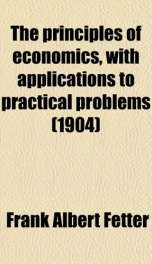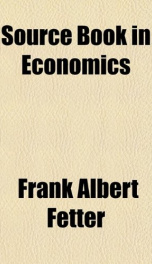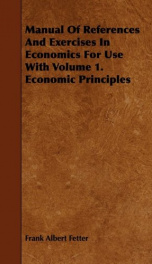the principles of economics with applications to practical problems

Purchase of this book includes free trial access to www.million-books.com where you can read more than a million books for free. This is an OCR edition with typos. Excerpt from book: Then wealth and welfare Freemen are not economic wealth here and now they are sought and an importance is attached to them because of their power to gratify an immediate desire. 5. In studying the question of social prosperity, however, we must rise to the standpoint of the social philosopher and consider the more abiding effects of wealth. Wants may be developed and made rational, and the permanent prosperity of a community depends upon this result. Any species of animal that continued regularly to enjoy that which weakens the health and strength would become extinct. Any society or individual that continues to derive gratification, to seek its pleasure, in ways that do not, on the average, minister to permanent welfare, sinks in the struggle of life and gives way to those men or nations that have a sounder and healthier adjustment of wants and welfare. We touch here, therefore, on the edge of the great problems of morals, and while we must recognize the contrast that often exists in the life of any particular man between his "pleasures" and his health and happiness, we see that there is a reason why, on the whole, and in the long run, these two cannot remain far apart. The old proverbs, "Be virtuous and you will be happy," "Honesty is the best policy," and "Virtue is its own reward," have a sound basis in the agelong experience of the world. Cynics or jesters may easily disprove these truths in a multitude of particular cases. 6. Wealth does not include such personal qualities as honesty, integrity, good health. Some economists speak of these as "internal goods," but it is far better not to speak of free men or of their qualities as wealth. Many difficulties arise from such a use of the term in practical discussion. One of the most important of all distinctions to...
Info about the book
Author:
Series:
Unknown
ASIN:
B008C4TZD4
Rating:
5/5 (3)Your rating:
0/5
Languge:
English
Users who have this book
Users who want this book
What readers are saying
What do you think? Write your own comment on this book!
write a commentif you like the principles of economics with applications to practical problems try:
Do you want to exchange books? It’s EASY!
Get registered and find other users who want to give their favourite books to good hands!




